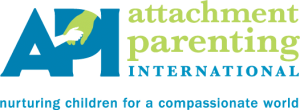Being a mom is like being a gardener — it’s hard labor that gets accomplished regardless of the conditions. It is the kind of work that requires fortitude, dedication, and an abundance of patience. We tend to our children, nourish them, watch them grow, and reap what we sow. All the while, we are continuously mesmerized by their essence and beauty.
is like being a gardener — it’s hard labor that gets accomplished regardless of the conditions. It is the kind of work that requires fortitude, dedication, and an abundance of patience. We tend to our children, nourish them, watch them grow, and reap what we sow. All the while, we are continuously mesmerized by their essence and beauty.
Today, as we celebrate the unique and precious role of a mother, we bring to you these thoughtful expressions from mothers around the world:
What do you cherish most about being a mom?
Megan Bell, Fox Valley API, Illinois USA: “I cherish the spontaneous proclamations of love my toddler gives me, and when she shows me empathy. I love watching her grow. Our children really do learn by example. It’s beautiful and stunning to witness.”
Rochelle Kipnis, New Jersey USA: “As a homeschooling mom of 3, I cherish the moments spent with my children. Hugging and kissing them, watching them laugh, learn, smile, grow, and play brings me the most joy in life. No matter how big they get, they will always be my babies and I will always be here for them. They are life’s greatest joy and blessings.”
Lisa Feiertag, API Leader Applicant Liaison, Maryland USA: “The unconditional love that my children shower on me is what I cherish most about being a mom. I love the snuggles, laughs, giggles as well as the long conversations that we engage in. I love watching my kids grow into the young adults that they are becoming and seeing them share their love with others.”
Effie Morchi, API Assistant Editor, New York USA: “I cherish most the growth and transformation; mine as well as my children’s. I marvel at how parenting has taught me that the simple moments and things in life are truly the profound ones: a day spent together at the park, a gentle smile, a trivial goal achieved; they are the bits that make our life wholesome.”
Jillian Amodio, Maryland USA: “What I cherish most largely depends on the day. On a good day, it’s the smiles and laughter emanating from my children. On a bad day…bedtime and wine? No, really though, all jokes aside, what I cherish most are the memories we make each day. Every night before my children go to bed, regardless of what kind of day we’ve had, we cuddle in their beds, read books, and sing songs. We talk about what happened that day and it helps us realize that even on the days that are ‘mundane’, ‘boring,’ or just plain not very good, we have a really great thing going — we have each other, and we certainly do have a whole lot of fun together.”
Kelly Shealer, API of Frederick, Maryland USA: “My favorite moments of being a mom are when my children and I are able to take a break and relax together — like lying down together at bedtime or reading a book to my daughter while she sits on my lap. I love these times when we’re able to pause from all the busyness of our day and just be together.”
Shoshana Hayman, Israel: “Being a mom has been and continues to be the most fulfilling aspect of my life. No other role gives me the power to develop loving, deep, and lasting relationships with those who are dearest to me while at the same time helping my children bring their human potential to fruition.”
Katelynne Eid, Connecticut USA: “The thing I cherish most about being a mom is just getting to witness as these little lives develop. I’m so grateful for being able to be a consistent and supportive presence as they figure out who they are.”
Kassandra Brown, Boulder CO: “I cherish the moments when my perspective broadens from the day-to-day busyness of eating, sleeping, school, transitions, and stuff-to-do to notice the feeling of loving my children. How my heart softens, a smile comes to my face, and I realize how lucky I am that these thoughtful, loving humans love me. Once my perspective shifts, my parenting shifts and I find myself effortlessly working-with rather than doing-to or managing.”
Inga Bohnekamp, Ontario Canada: “I think what I cherish most is the experience of this unconditional, pure, and infinite love, which I have felt for my daughter ever since she came into my life (started growing inside my belly). I am so grateful for every moment we share, the challenging ones as well as the ones filled with pure happiness, laughter, and joy. She inspires me every day; she reminds me of what really, really counts in life, and I cherish this incredibly unique and intense opportunity to continue learning and growing alongside her as she grows up. But, if I have to boil it down to one thing, it would be the LOVE.”
————
A Mother’s love is a gift that gives forever and her legacy is life
In gratitude, consider a tribute to a Mother in your life while helping a mother in need of support at the same time.
It’s a gift that that keeps on giving because you help mothers receive much needed information and support.
This is the heart of API.
We invite you to share a gift of love that gives on in her honor.
Happy Mother’s Day from Attachment Parenting International
————

Editor’s note: In observance of Get Better Sleep Month this May, Attachment Parenting International (API) brings you a 4-part series on normal, healthy infant sleep. Here is part 4:







